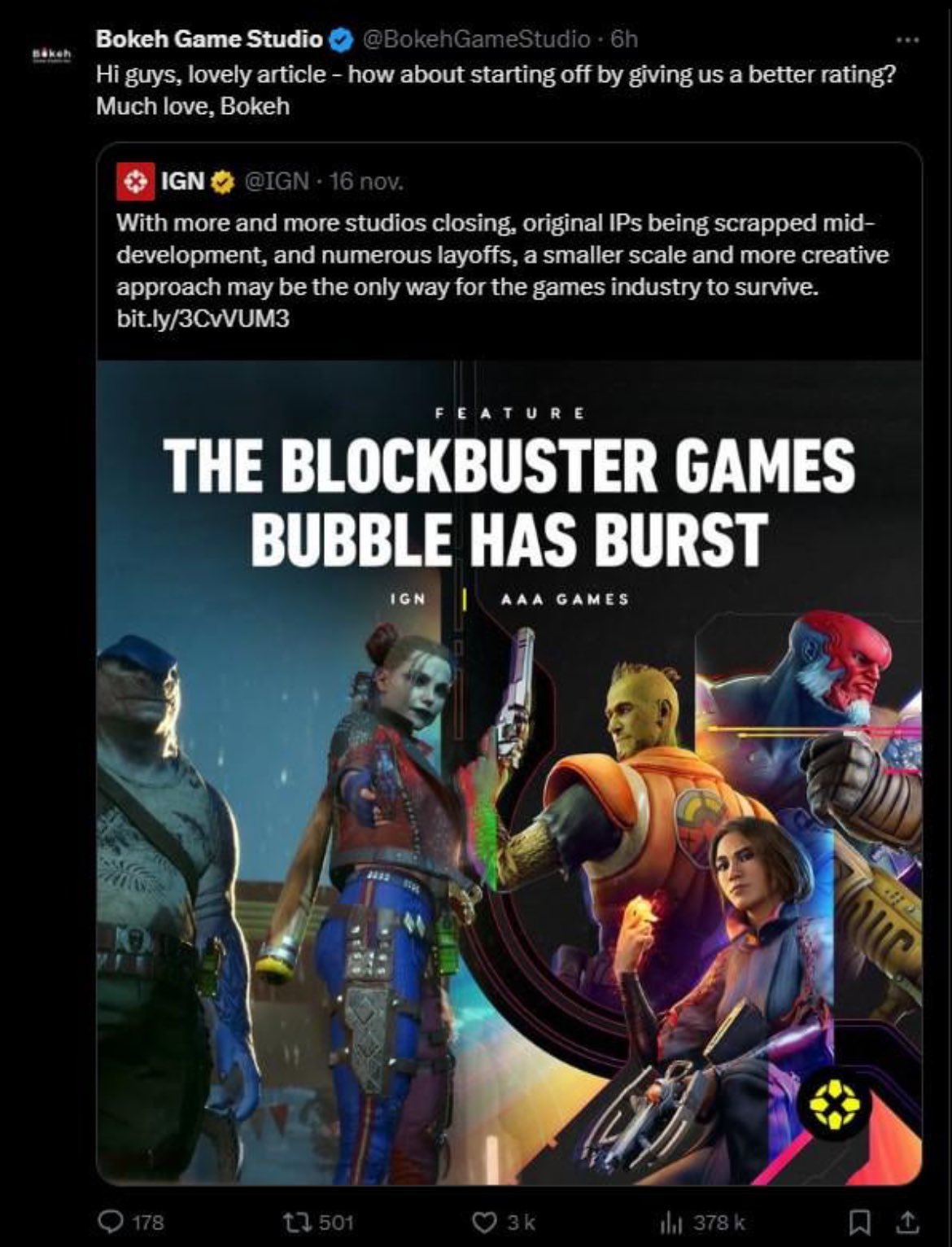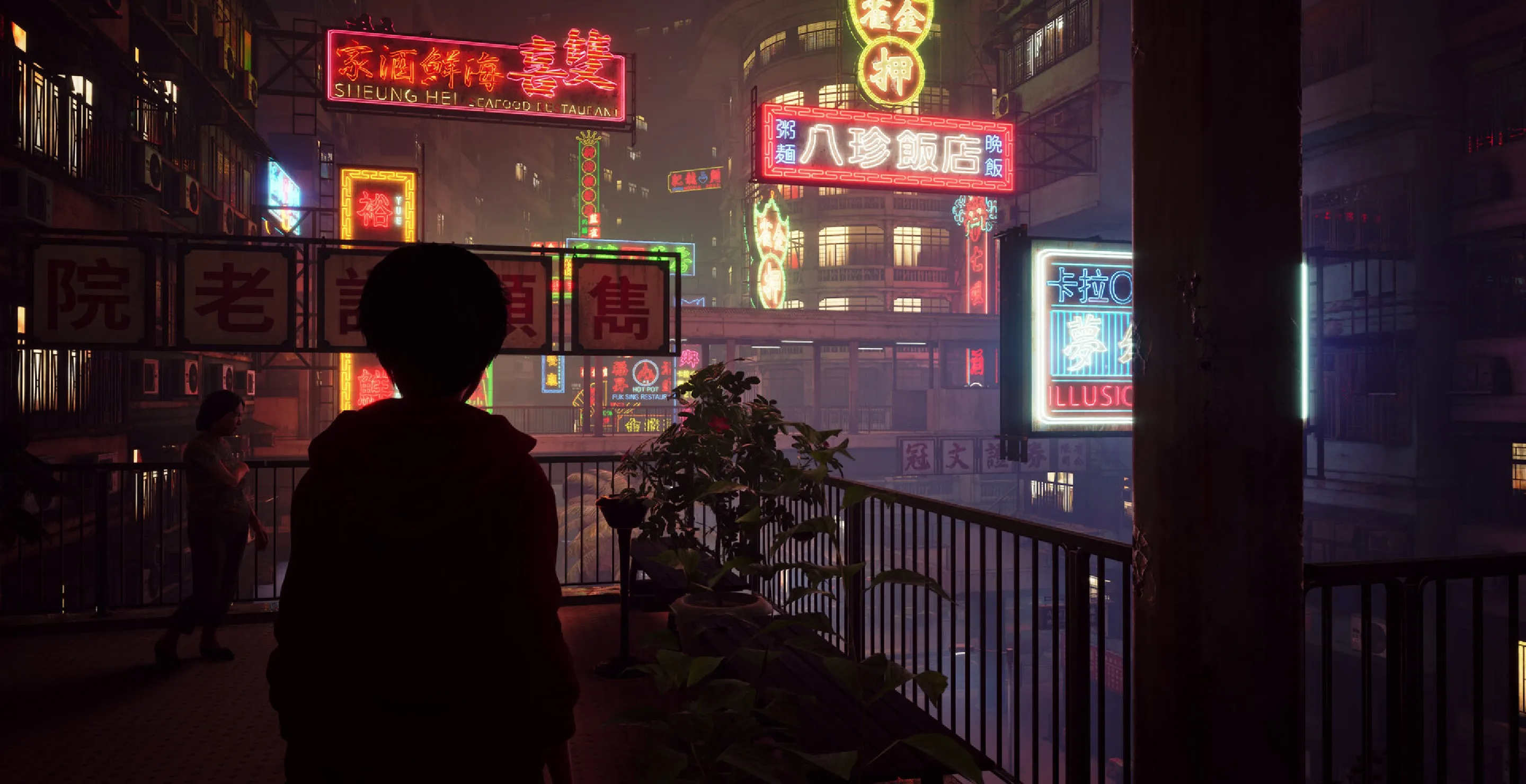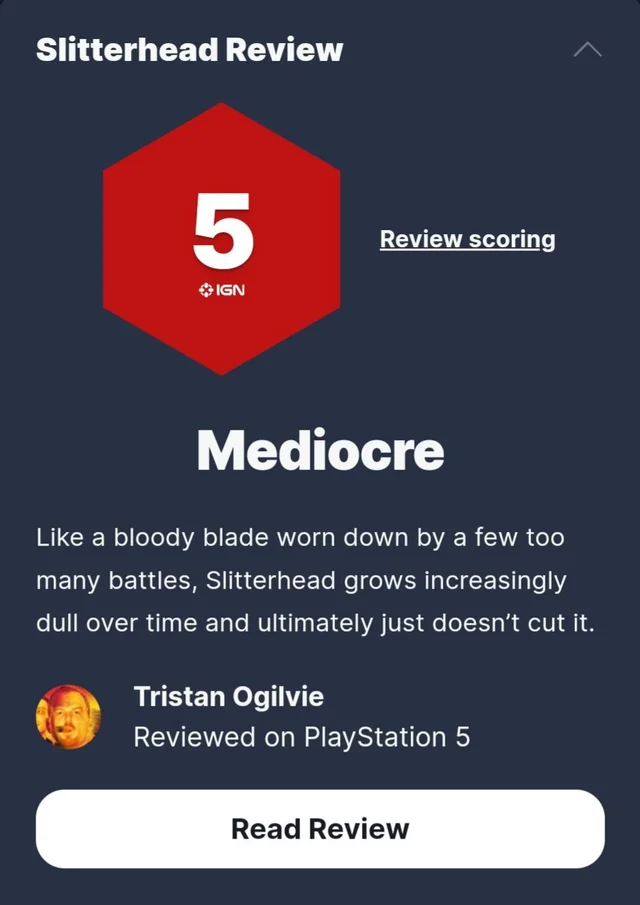+  |
| art by mikorinye |
|
+ mikorinye instagram |
| site supporters |
|
+ skelecopter + smudgebap + dead_heather |
| other writing |
|
+ game impressions/reviews
+ video game TV/movies + opinion pieces + the webmasters diary page |
| support me! |
|
+ + + help me get things to cover + my playasia affiliate link! + sign my guestbook! |
| song used |
| + slitterhead OST: game of reincarnation |
| Layout Credits |
|
Layout by: Lovely Designs Brushes: [1] [2] Image: Hyung Taekim |
| slitterhead, bokeh and the issues with review scores |

trying to score art objectively is a broken system and bokeh games were fully correct. a bold statement maybe, controversial in some places, but i believe it to be true. the bokeh games I'm referring to are the studio newly formed by keiichiro Toyama, a developer behind games like silent hill, siren and gravity rush, a games industry legend in every right. recently i was shown a tweet they made to IGN criticizing them for coming out with an article about how "AAA is dead and we need smaller and more experimental titles!" while also being the kind of site to try and numerically rate art and in turn trashing the same kinds of small and experimental games like their game slitterhead. i don't get involved in net drama anymore, i don't even use the net really other than for posting here and talking to friends on messaging apps, but i felt the need to look more into this and comment on it because i do think that despite the massive amount of backlash the studio has received, they're also fully right and we do need to have a discussion on how this system is broken and how we can fix it.
bokeh was right to be upset, the tweet in question has now been deleted but it was “Hi guys, lovely article—how about starting off by giving us a better rating? Much love, Bokeh.” , and while i think asking for a higher score is a little silly since the scoring system is at the heart of the problem here, i also think they're not wrong, you cannot demand more experimental and smaller budget games while also giving those games 5/10 simply for not having the tried and true design or polish of a AAA game, you cannot give one love and the other not and simply expect the industry to go in the direction of the game you're trashing, you cannot have both , you need to meet these games on their own terms and try and speak on their good points, rather than dunking on it for a janky mechanic or some frame rate issues, doing that is what got you to the very situation you want to complain about. sadly the people on the whole do not seem to be backing bokeh, places like resetera are full of dunks on the game from people who either never played or had it out for the game to begin with and people championing the almighty review score as being all important and that bokeh simply couldn't hack it as "good developers" by quoting the games metacritic or saying it didn't sell as if sales mean literally anything, its a perfect showcase of why the whole system is broken if nothing else, a system that rewards games with wide appeal and punishes games who do something new, divisive games that to the people who get it will be some of the best games they will ever play and its a system that results in safer games less willing to really connect with a niche audience that is starving. it all comes back to one issue though, the score, the score is the root of all evil here and its what i think breaks this system, i don't use one as you've probably noticed and i never will, i disagree with it on every level and i think its broken games discussion on a fundamental level, turning it less about the art and more about whoever's toy is better, we can't expect games to be taken seriously as art if we treat them like they're toys to be reviewed, consumed and forgotten, both we and the medium deserve better than that.
trying to score art on any "objective metric" is something I've spoken about before, very early even in my writing, its one of my oldest pages and very likely does not hold up but i stand by the general idea i put out, objective metrics are a silly system and one that's almost broken how a whole medium of people see and interact with art, it's damaged the industry possibly beyond repair and it's caused something as meaningless as a metacritic score to actually influence how games are made, with the idea of playing it safe and chasing that ever larger critic score, relying on trends that will score well on that objective meter even when something more different or experimental would make for a far cooler or more fun game and its led to an industry that even the very people championing this metric are sick of. clearly something has to be done, but sadly people will refuse to see this reality for what it is, they'll blame anything else but this system because they're so caught up in it and i don't blame them, it is super ingrained in the culture and when everyone speaks as though it's a fact its hard to divorce from that, people are taking to calling slitterhead bad and taking every chance they can to dunk on it, even though by all accounts even the critics who dislike it are at least positive on its existance, but when to many of these people even a 7/10 means a game is so bad as to be unplayable, how is a system like that ever to be sustainable, how is a more experimental game, something that swings weather it hits or misses, able to thrive in a system where a bad step can render your game deemed unplayable to the public, it's fundamentally broken, you cannot have an industry that thrives on experimentation when games are punished for being experimental.
art cannot be scored on a gradient, there is no one way to view it, what matters to me may not matter to you, i don't like 2D platformers and you might not like otome games, i don't care about bad frame rates or jank but to you these might be dealbreakers, were we to score the same games we would come away with wildly different scores and so by default there cannot be an objective critical consensus, some sites like Metacritic try and reach one by pooling together an average, but even this doesn't work, not all games have the same amount of reviews, not all genres get equal treatment, vns on the platform are often scored lower simply for being VN's, its prone to reviewbombing and brigading and when you pool a 40 and an 80 it gets a 60, and when nobody gave it a 60 how can a 60 be its true objective score, that just seems silly to me. instead we should let the games speak for themselves, abandon this system of objective ratings and let our writing on these things speak for what the game is, its strengths and weaknesses, it'll work out better for everyone in the long run and it means people actually have to try to engage with it on some level, rather than skipping to the end to see weather their preconceived notions of the game were right or not.
|


